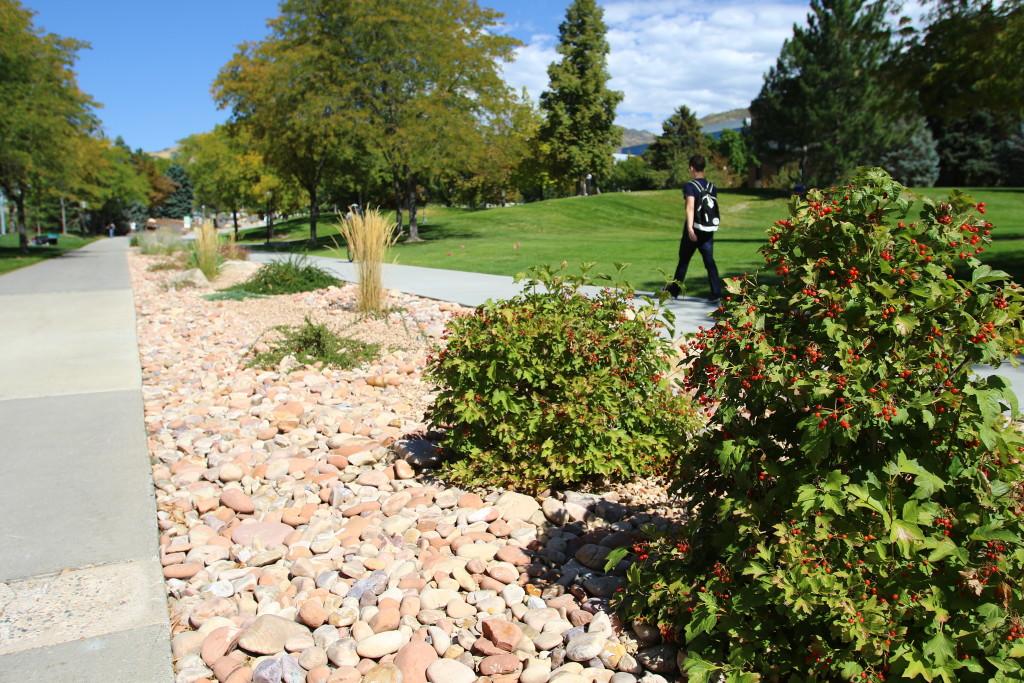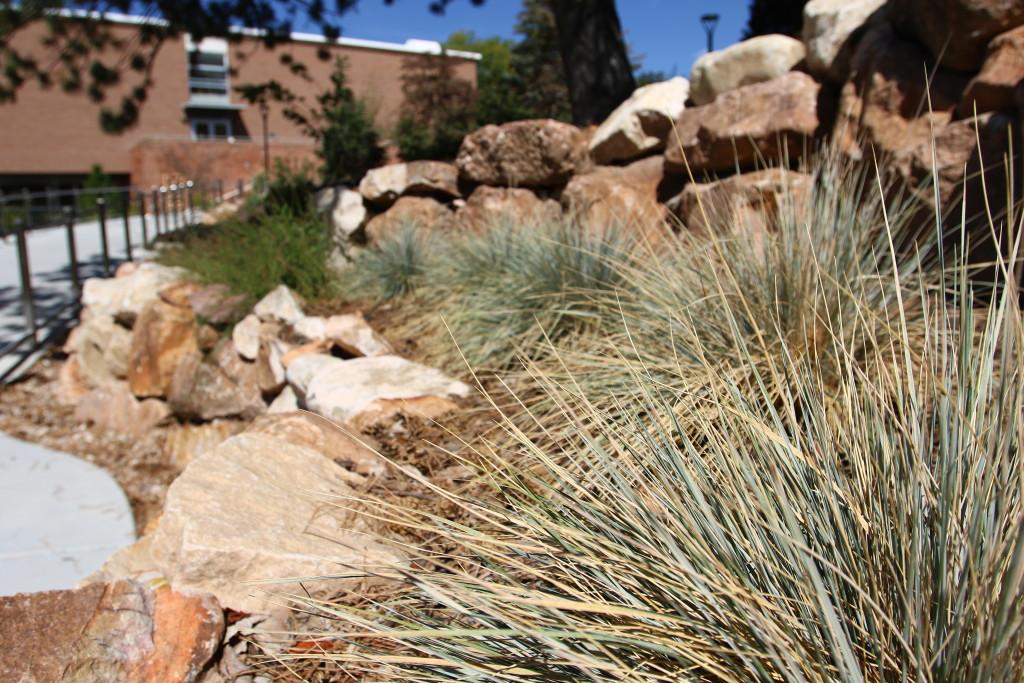Efforts to improve sustainability have expanded at the U in recent years, in part due to a rise in student interest.
With an increase in students looking to get involved, the U’s Sustainability Office has relied more heavily on the endeavors of other departments on campus to move forward with environmental initiatives, with a fair amount of success. Various members of the U community have stepped up with these green projects, including the President’s Sustainability Advisory Board, a committee of faculty, students and community members who advise U President David Pershing on new policies.
“Our goal is to be sure that we’re reaching everyone across all of the things that the university does,” said Amy Wildermuth, chief sustainability officer.
Here are some of the efforts the U is engaging in to become more green-conscious:
Food
The U joined the Real Food Challenge, a nationally organized program that works with colleges to offer healthy, organic food to students during the 2014-2015 school year. The current goal of the program is to get 20 percent of campus dining options to be “real,” but presently only about 11.5 percent falls into that category.

The U’s Edible Campus Gardens also offers opportunities for students to learn how to grow their own fresh produce.
“It’s a great way to get your hands dirty,” said Ayrel Clark-Proffitt, campus engagement coordinator for the sustainability office.
There are two gardens on campus, one next to the Sill Center and one next to Pioneer Memorial Theatre. Each boasts an array of vegetables and fruit, which also go to Dining Services and the weekly Farmers Market on campus.
Transportation
Commuter Services encourages students to utilize alternative modes of transit to be more sustainable. UCards double as passes for TRAX trains and buses.
As an incentive for carpooling, Commuter Services increased the number of license plates eligible to be attached to a single parking permit from two to four for the student pass.
Clark-Proffitt said biking is also a viable alternative to cars for those who live on or near campus. There are plans in place to create more places to lock up your bike and create a larger network of bicycle routes on campus.
The U also participated in the statewide Clear the Air Challenge during July, which focused on eliminating unnecessary car rides. The U finished in the top spot and will hold a campus-wide challenge this winter.
Energy
During Fall Semester 2014, the U launched its Community Solar program. Students and faculty could install solar panels on their homes for about 25 percent off the standard rate. The price ranged from $3.17-$3.27 per watt, along with a fee for equipment to monitor the panels.

The program exceeded expectations by selling back 1.8 megawatts of solar power energy. Due to its popularity, Wildermuth said participants attempted to bribe her for a higher place on the waiting list.
The Energy Ambassador program, which performs audits on homes to help residents conserve energy and water, is guided by students. The audits are only available to students, and have been successful in “changing a lot of people’s minds,” Clark-Proffitt said.
She said students have a “powerful voice” in creating positive change on campus with environmental policies. Students can create groups with green initiatives that fall within their particular interests and receive grants from the Sustainable Campus Initiative Fund to start projects. Grants range anywhere from $100 to $80,000, but groups must be sponsored by a faculty member or a department to be eligible. The money comes from a $2.50 fee students pay each semester.
The sustainability office attempts to guide students in their efforts by narrowing the scope of projects, focusing interests and providing resources. ASUU also offers opportunities for student involvement with its Sustainability Board. Wildermuth stresses this collaboration of all people and departments on campus to create more sustainable initiatives.
@sarahnlegg











